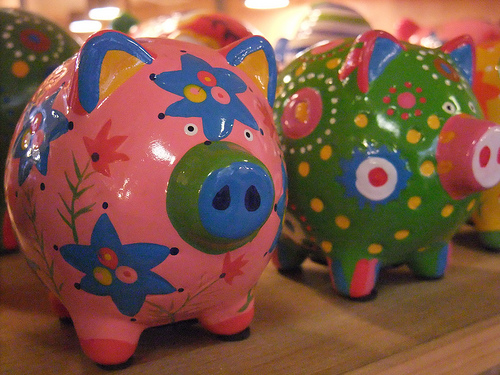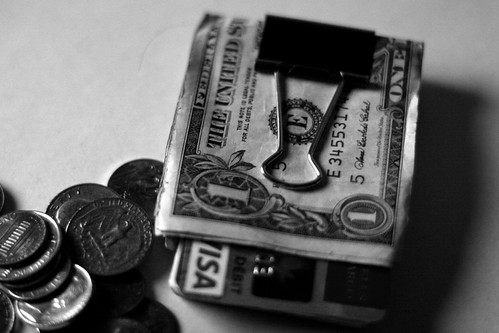Posts Tagged ‘Credit Cards’
Living Frugally. Living Fabulously.

Being Frugal Today May Not Be A Choice.
From the day we are born we are fed the idea that we must spend money to be happy, buy to be content. But, is that really true? Are we happier spending money we may not have? Are we more content when we have maxed out our credit cards or depleted our bank accounts?
Our current economic times, with the weight of consumer debt, skyrocketing foreclosures and job layoffs say we’re not. Many have come to realize that spending money wildly, without taking the time to consider each purchase has brought us to where we are today. But, what do we or can we do about it? It is so ingrained in us that we must have what the neighbors have, wear what the celebrities wear and buy what the television ads tell us to buy. How do we change?
Simply put – we change – slowly, deliberately, consciously, and over time. We change the way we think about money and spending and having; money we may not have; spending where we don’t need to; and having what we think we need, but really only want. Change can be scary and the steps daunting, but they can also bring us a great deal of freedom and contentment. Not to mention money.
There are hundreds of books and articles on frugal living out there. Plus loads of information about how to reduce your life and cut out the things you like to do. These books and articles tell you how to creatively do without.
But I’m not going to tell you that. In the next few articles, I’m going to detail the same plan that has worked for me—and for friends who’ve asked me to reveal how I live with abundance, even though I’m a single Mom on a limited income. These are my tricks to living what I think is a great life full of interesting activities, culture, art, music, hobbies, and good food. So, check back often to find out how I’ve been able to eat well, entertain, enjoy concerts and plays and art exhibits without breaking the bank. I think you’ll find some helpful hints and few surprises too. Read the rest of the story »
How Long Can You Go Without Spending?
Living a homesteading life is about living simply and carefully, managing the resources your family has. And that includes your cash.
In these tough times everyone is watching how they spend their money and what they spend it on. But, have you ever challenged yourself to see if you can keep the money that’s in your wallet – in your wallet?
It might be interesting to see how long you can make a $20 bill last.
So, here’s the challenge – during the course of a week or a day, remove all the credit cards and cash from your wallet, except for one $20 bill. The limited amount of cash will encourage you to think about which of your usual expenses are essential and which ones are just nice to have. Think about some of your usual non-essential purchases, such as lunch, a newspaper, a coffee or a car wash.
Through the course of the challenge, think about the non-essential purchases you make and identify ways to supplement them, so you don’t feel you are depriving yourself. If you normally buy lunch, pack a lunch from home. You’ll be surprised how much money this will save you.
Do you buy a newspaper or a magazine throughout the day? Switch to on-line news sources or bring a book to read instead. Better yet, bring a book about a homesteading skill you’d like improve on or learn.
If an afternoon coffee is your crutch, bring your own supplies from home and make your java at work. Remember – you can enjoy your lunch or coffee along with the book, outside in the fresh air where you can clear your head and shake off the stresses of the day.
If you’re use to having your car washed every week, try using an inexpensive “Wash Only” car wash. You know – the kind where you stay in your car while it’s being washed. The inside cleaning can be done at home for free. Or, put yourself on a once a month car wash schedule then move towards a “when-ever-it-needs-it” plan.
The goal of the challenge is to see how thrifty you can be, how far you can stretch your money, identify areas of non-essential spending and most important of all SAVE YOUR CASH.

Recent comments
Aenean nonummy hendrerit mauris. Phasellus porta.